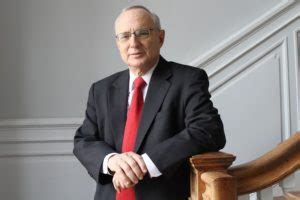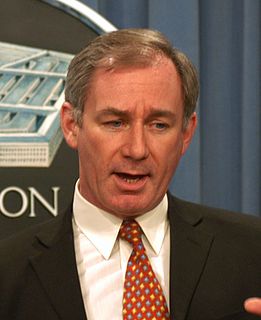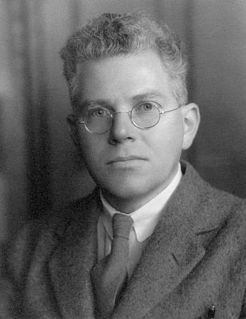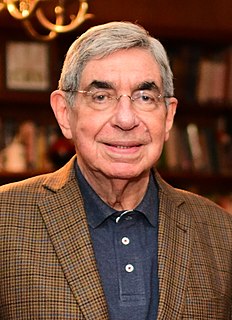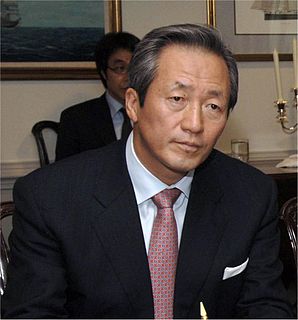A Quote by Daisaku Ikeda
The challenge of preventing any further proliferation of nuclear weapons is just such a trial in the quest for world peace, one that cannot be achieved if we are defeated by a sense of helplessness. The crucial element is to ensure that any struggle against evil is rooted firmly in a consciousness of the unity of the human family, something only gained through the mastery of our own inner contradictions.
Quote Topics
Achieved
Against
Any
Cannot
Challenge
Consciousness
Contradictions
Crucial
Defeated
Element
Ensure
Evil
Family
Firmly
Further
Gained
Helplessness
Human
Human Family
Inner
Just
Mastery
Nuclear
Nuclear Weapons
Only
Our
Own
Peace
Preventing
Proliferation
Quest
Rooted
Sense
Something
Struggle
Through
Trial
Unity
Weapons
World
World Peace
Related Quotes
We can never obtain peace in the world if we neglect the inner world and don't make peace with ourselves. World peace must develop out of inner peace. Without inner peace it is impossible to achieve world peace, external peace. Weapons themselves do not act. They have not come out of the blue. Man has made them. But even given those weapons, those terrible weapons, they cannot act by themselves. As long as they are left alone in storage they cannot do any harm. A human being must use them. Someone must push the button. Satan, the evil powers, cannot push that button. Human beings must do it.
Negotiations with Iran, especially, will not be easy under any circumstances, but I suspect that they might be somewhat less difficult if the nuclear-weapon states could show that their requests are part of a broader effort to lead the world, including themselves, toward nuclear disarmament. Preventing further proliferation is essential, but it is not a recipe for success to preach to the rest of the world to stay away from the very weapons that nuclear states claim are indispensable to their own security.
What is the only provocation that could bring about the use of nuclear weapons? Nuclear weapons. What is the priority target for nuclear weapons? Nuclear weapons. What is the only established defense against nuclear weapons? Nuclear weapons. How do we prevent the use of nuclear weapons? By threatening to use nuclear weapons. And we can't get rid of nuclear weapons, because of nuclear weapons. The intransigence, it seems, is a function of the weapons themselves.
Let us keep before us the fact that, almost without exception, every race or nation that has ever got upon its feet has done so through struggle and trial and persecution; and that out of this very resistance to wrong, out of the struggle against odds, they have gained strength, self-confidence, and experience which they could not have gained in any other way.
Peace is not just the absence of war and conflict; it goes well beyond that. Peace must be fostered within the individual, within the family and within society. Simply transferring the world's nuclear weapons to a museum will not in itself bring about world peace. The nuclear weapons of the mind must first be eliminated.
From the prophets' dreams of the time when nations would beat their swords into plowshares to today's aspirations of a nuclear-weapons-free world, we have sought to avoid armed conflict and not yield to despair in the search for universal peace. The nuclear threats from Iran, North Korea, and terrorists can only be overcome through international cooperation. We call upon Congressional leaders and those worldwide to join together to ensure the fulfillment of these long-overdue initiatives and the achievement of a safer future without nuclear weapons.
The question of real, lasting world peace concerns human beings, so basic human feelings are also at its roots. Through inner peace, genuine world peace can be achieved. In this the importance of individual responsibility is quite clear; an atmosphere of peace must first be created within ourselves, then gradually expanded to include our families, our communities, and ultimately the whole planet.
Without inner peace, outer peace is impossible. We all wish for world peace, but world peace will never be acheived unless we first establish peace within our own minds. We can send so-called 'peacekeeping forces' into areas of conflict, but peace cannot be oppossed from the outside with guns. Only by creating peace within our own mind and helping others to do the same can we hope to achieve peace in this world.
I, who had been in favour of nuclear energy for generating electricity ... I suddenly realised that anybody who has a nuclear reactor can extract the plutonium from the reactor and make nuclear weapons, so that a country which has a nuclear reactor can, at any moment that it wants to, become a nuclear weapons power. And I, right from the beginning, have been terribly worried by the existence of nuclear weapons and very much against their use.
The existence of nuclear weapons presents a clear and present danger to life on Earth. Nuclear arms cannot bolster the security of any nation because they represent a threat to the security of the human race. These incredibly destructive weapons are an affront to our common humanity, and the tens of billions of dollars that are dedicated to their development and maintenance should be used instead to alleviate human need and suffering
I believe that to meet the challenge of our times, human beings will have to develop a greater sense of universal responsibility. We must all learn to work not just for our own self, family, or nation but for the benefit of all humankind. Universal responsibility is the key to human survival. It is the best foundation for world peace, the equitable use of natural resources, and through concern for future generations, the proper care of the environment.
With all of the history of war, and the human race's history unfortunately has been a good deal more war than peace, with nuclear weapons distributed all through the world, and available, and the strong reluctance of any people to accept defeat, I see the possibility in the 1970's of the President of the United States having to face a world in which 15 or 20 or 25 nations may have these weapons.






